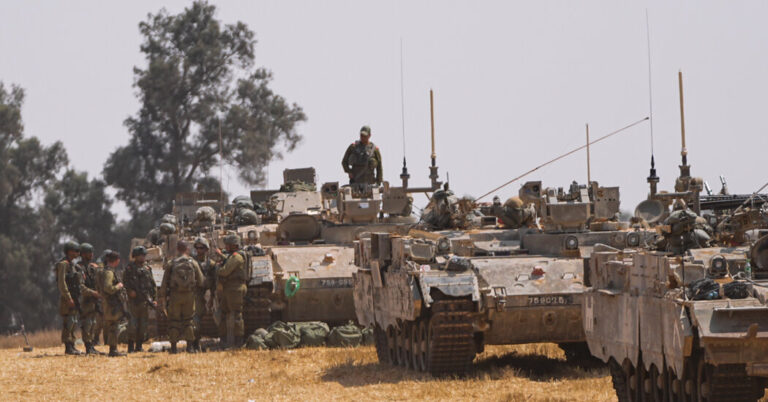After a months-long standoff, Israel is softening some of its demands in negotiations over a ceasefire in the Gaza Strip and the release of hostages held there.
Under its latest proposal, Israel would allow displaced Palestinian civilians to return to northern Gaza, according to two Israeli officials, marking a sharp reversal on an issue that has been a sticking point in negotiations.
For weeks, Israel has demanded that it be allowed to impose significant restrictions on Palestinians returning to the north, fearing that Hamas would take advantage of a large-scale return to strengthen itself. Today, Israel agreed to the mass return of Palestinian civilians in the first phase of a deal, according to the officials, whose account was confirmed by another official close to the talks.
One of the Israeli officials said those returning to the north would not be subject to any inspections or limitations, while the second said there would be virtually no restrictions, without elaborating. The officials spoke on condition of anonymity to share details of the proposal.
It was unclear whether Hamas would accept the latest Israeli proposal, which is part of negotiations the two sides are conducting indirectly through Egyptian and Qatari mediators. As of Wednesday afternoon, the group had not officially released a response.
Hamas has long demanded that any agreement involve a definitive end to the war, which has forced most of Gaza’s more than two million residents to flee their homes. The Israeli offer, according to one of the Israeli officials, does not include explicit mention of an end to the fighting.
Looming over the negotiations is Israel’s threat to invade Rafah, Gaza’s southernmost city where around a million civilians are sheltering, as well as thousands of Hamas fighters, according to Israel. But even as he pledges to carry out his ground invasion plan there, in defiance of calls from world leaders and humanitarian groups, he shows some willingness to make concessions in negotiations to end the fight and free the hostages.
Monday, The New York Times reported that, as part of its proposal, Israel had reduced the number of hostages that Hamas would have to release in the initial phase of a deal. For months he had insisted on the release of 40 hostages, but in its new offer the Israeli government said it would accept 33.
This change was motivated in part by the fact that Israel now believes that some of the 40 died in captivityone of the officials said.
As details of Israel’s latest offer emerged, Prime Minister Benjamin Netanyahu came under increasing pressure from his right-wing coalition partners to reject the compromise. If they withdraw from government following a deal, Israel could be headed for early elections, threatening Mr Netanyahu’s political future.
Finance Minister Bezalel Smotrich, a hard-line member of the coalition, said that if Mr Netanyahu immediately gave up on invading Rafah, a government under his leadership would not have “the right to exist”.
On Tuesday, Mr. Netanyahu said an invasion of Rafah would take place, without specifying when.
“The idea that we will stop the war before we have achieved all its objectives is out of the question,” he said during a meeting with the families of the hostages. according to a statement from his office. “We will enter Rafah and eliminate the Hamas battalions there – with or without an agreement – in order to achieve total victory. »
If Israel and Hamas reach an agreement, it would be the first ceasefire since late November, when a short pause in fighting allowed the release of more than 100 hostages and 240 Palestinian prisoners.
Hamas and its allies captured around 240 Israelis and foreigners in their October 7 attack, prompting Israel to go to war in Gaza. More than 130 hostages are still believed to be held in Gaza, but some are believed to have died.
Aaron Boxerman reports contributed.


